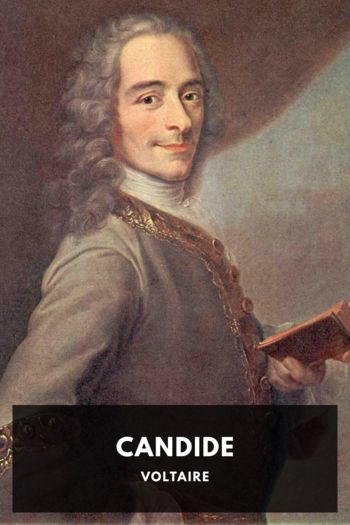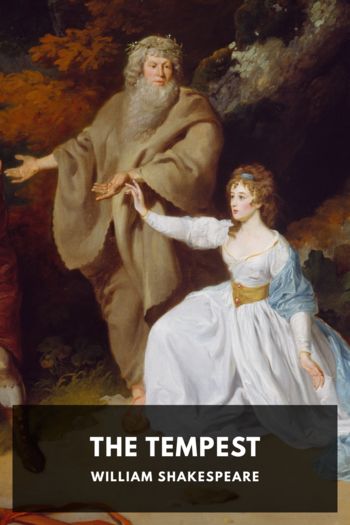Candide - Voltaire (world of reading txt) 📗

- Author: Voltaire
Book online «Candide - Voltaire (world of reading txt) 📗». Author Voltaire
“Faith, Sire, they will no longer give credit to your Majesty nor to me, and we may perhaps both of us be put in jail this very night. Therefore I will take care of myself. Adieu.”
The servants being all gone, the six strangers, with Candide and Martin, remained in a profound silence. At length Candide broke it.
“Gentlemen,” said he, “this is a very good joke indeed, but why should you all be kings? For me I own that neither Martin nor I is a king.”
Cacambo’s master then gravely answered in Italian:
“I am not at all joking. My name is Achmet III. I was Grand Sultan many years. I dethroned my brother; my nephew dethroned me, my viziers were beheaded, and I am condemned to end my days in the old Seraglio. My nephew, the great Sultan Mahmoud, permits me to travel sometimes for my health, and I am come to spend the Carnival at Venice.”
A young man who sat next to Achmet, spoke then as follows:
“My name is Ivan. I was once Emperor of all the Russias, but was dethroned in my cradle. My parents were confined in prison and I was educated there; yet I am sometimes allowed to travel in company with persons who act as guards; and I am come to spend the Carnival at Venice.”
The third said:
“I am Charles Edward, King of England; my father has resigned all his legal rights to me. I have fought in defence of them; and above eight hundred of my adherents have been hanged, drawn, and quartered. I have been confined in prison; I am going to Rome, to pay a visit to the King, my father, who was dethroned as well as myself and my grandfather, and I am come to spend the Carnival at Venice.”
The fourth spoke thus in his turn:
“I am the King of Poland; the fortune of war has stripped me of my hereditary dominions; my father underwent the same vicissitudes; I resign myself to Providence in the same manner as Sultan Achmet, the Emperor Ivan, and King Charles Edward, whom God long preserve; and I am come to the Carnival at Venice.”
The fifth said:
“I am King of Poland also; I have been twice dethroned; but Providence has given me another country, where I have done more good than all the Sarmatian kings were ever capable of doing on the banks of the Vistula; I resign myself likewise to Providence, and am come to pass the Carnival at Venice.”
It was now the sixth monarch’s turn to speak:
“Gentlemen,” said he, “I am not so great a prince as any of you; however, I am a king. I am Theodore, elected King of Corsica; I had the title of Majesty, and now I am scarcely treated as a gentleman. I have coined money, and now am not worth a farthing; I have had two secretaries of state, and now I have scarce a valet; I have seen myself on a throne, and I have seen myself upon straw in a common jail in London. I am afraid that I shall meet with the same treatment here though, like your majesties, I am come to see the Carnival at Venice.”
The other five kings listened to this speech with generous compassion. Each of them gave twenty sequins to King Theodore to buy him clothes and linen; and Candide made him a present of a diamond worth two thousand sequins.
“Who can this private person be,” said the five kings to one another, “who is able to give, and really has given, a hundred times as much as any of us?”
Just as they rose from table, in came four Serene Highnesses, who had also been stripped of their territories by the fortune of war, and were come to spend the Carnival at Venice. But Candide paid no regard to these newcomers, his thoughts were entirely employed on his voyage to Constantinople, in search of his beloved Cunégonde.
XXVII Candide’s Voyage to ConstantinopleThe faithful Cacambo had already prevailed upon the Turkish skipper, who was to conduct the Sultan Achmet to Constantinople, to receive Candide and Martin on his ship. They both embarked after having made their obeisance to his miserable Highness.
“You see,” said Candide to Martin on the way, “we supped with six dethroned kings, and of those six there was one to whom I gave charity. Perhaps there are many other princes yet more unfortunate. For my part, I have only lost a hundred sheep; and now I am flying into Cunégonde’s arms. My dear Martin, yet once more Pangloss was right: all is for the best.”
“I wish it,” answered Martin.
“But,” said Candide, “it was a very strange adventure we met with at Venice. It has never before been seen or heard that six dethroned kings have supped together at a public inn.”
“It is not more extraordinary,” said Martin, “than most of the things that have happened to us. It is a very common thing for kings to be dethroned; and as for the honour we have had of supping in their company, it is a trifle not worth our attention.”
No sooner had Candide got on board the vessel than he flew to his old valet and friend Cacambo, and tenderly embraced him.
“Well,” said he, “what news of Cunégonde? Is she still a prodigy of beauty? Does she love me still? How is she? Thou hast doubtless bought her a palace at Constantinople?”
“My dear master,” answered Cacambo, “Cunégonde washes dishes on the banks of the Propontis, in the service of a prince, who has very few dishes to wash; she is a slave in the family of an ancient sovereign named Ragotsky,35 to whom the Grand Turk allows three crowns a day in his exile. But what is worse still is, that she has lost





Comments (0)